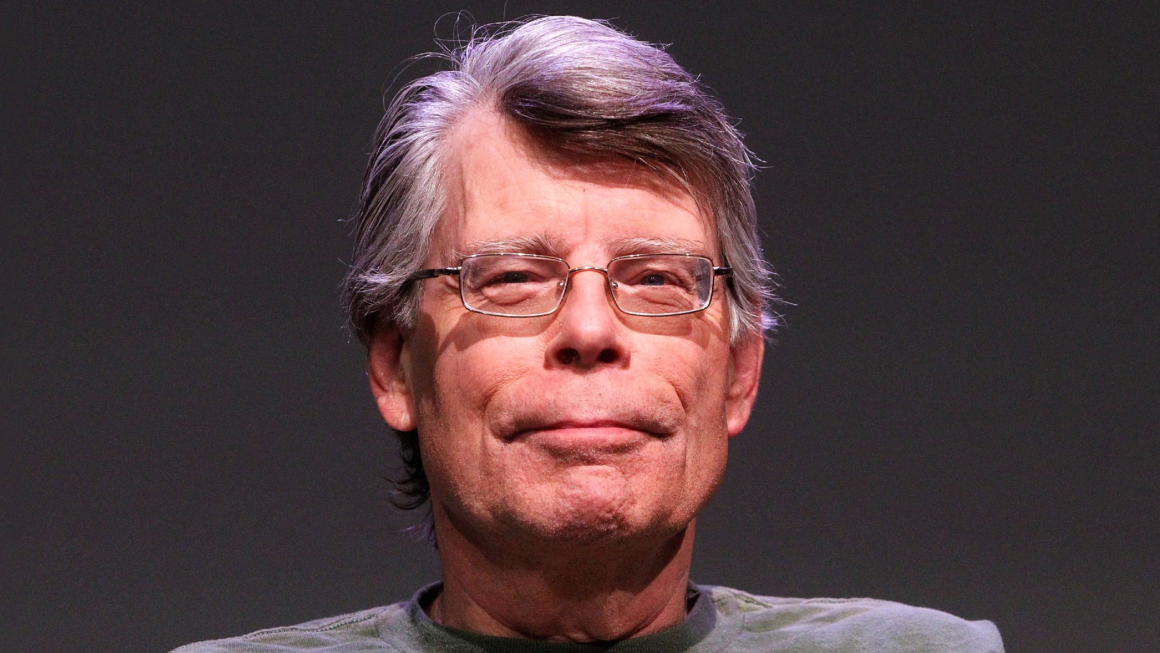For a guy who writes about awful stuff happening to people, Stephen King sure likes liking things. Just think about how many times he’s used his position to praise other creatives and projects. “I have seen the future of horror and his name is Clive Barker,” declared his blurb for the American release of Books […]
The post Salem’s Lot Movie Update Is Exciting News for Stephen King Fans appeared first on Den of Geek.
Warning: contains spoilers for Constellation episodes one to three.
Astronauts come back different. Leaving Earth’s atmosphere and seeing our planet from a distance is a perspective-altering experience. There’s even a name for it, as coined by writer Frank White in the title of his 1987 non-fiction book The Overview Effect: Space Exploration and Human Evolution.
White interviewed astronauts who reported feeling transcendent awe at the sight of Earth outlined against the backdrop of the cosmos. Some described the feeling as religious, others called it a deep sense of empathy for the planet and its inhabitants, others found it such a paradigm shift that it was extremely difficult to reintegrate into life on Earth – as if they, or the planet, had irretrievably changed.
cnx({
playerId: “106e33c0-3911-473c-b599-b1426db57530”,
}).render(“0270c398a82f44f49c23c16122516796”);
});
That’s part of the premise for Apple TV+’s eight-part sci-fi series Constellation, starring Noomi Rapace and Jonathan Banks. Rapace plays Johanna Eriksson, a European Space Agency astronaut who returns from a mission to find things in her life feel… different. As Jo recovers from the physical effects of a traumatic journey home, she can’t shake the sense that her daughter, her home, her husband and details of their family life aren’t quite the same. Is she experiencing a psychological side-effect, or could there be a more sci-fi explanation to do with an experiment conducted on board the International Space Station during her mission?
In Constellation’s first episode, a NASA astronaut carries out an experiment on the ISS’s Cold Atomic Laboratory – or CAL, a real instrument launched on board the ISS in 2018. The CAL is used to study the behaviour of particles in extremely cold microgravity conditions. As this 2023 paper in science publication Nature explains, the ultracold temperatures amplify quantum effects and allow for longer interactions time with gravity “the final force without a quantum theory”.
In the show, Jo tells her young daughter Alice via Facetime that the CAL experiment is “looking for a new form of matter”. Later on in episode three, Alice is told a little more by Jonathan Banks’ character Caldera, the Nobel Prize-winning physicist and astronaut who designed the experiment:
“For a long time, the way that we understood the world was governed by what is called Classical Physics. It is a basic way of measuring and predicting things. Then along came people, people like Albert Einstein. Have you heard of him? He started to look into really small things like atoms, subatomic particles, waveforms, and it began to look like Classical Physics didn’t apply anymore, which is mysterious. It’s not predictable in ways we currently understand.
“For example, the same thing can be in two different states at the same time. You can have a particle, for instance, the exact same particle, there’s a world in which that particle is black and a world in which that particle is white, and there’s a kind of point of liminal space between those worlds where the particle is black and white at the same time, and they don’t seem to want to decide which state they’ll be until someone looks at them.”
Alice tells Caldera that sounds nuts, which he grants her. It’s nuts but it’s real, he says.
Caldera has personal reasons for doggedly pursuing this quantum-state research, but his experiment is key to the story Constellation is telling. He’s attempting to determine whether in zero gravity, the same matter is able to exist simultaneously in two different states. If his experiment proves it possible for the exact same particle to be, as he says, both black and white at the same time, does that explain what Jo has experienced since returning from space? Why her previously bilingual daughter seems to no longer understand Swedish? Why the family car is blue when she swore it was once red?
Has space travel left Jo with more than just the Overview Effect, and could quantum matter be the real explanation for her uncanny return to Earth? The remaining five episodes will tell.
Constellation episodes one to three are available to stream on Apple TV+ now. Episode four arrives on Wednesday February 28.
The post What Is Constellation’s CAL Experiment? appeared first on Den of Geek.
Recommended Story For You :

Now Anyone Can Learn Piano or Keyboard

Before you spend a dime on tattoo removal you need to know something VERY important.

You can train your voice and become a brilliant singer!

Learn to Draw like a Master Artist

The World’s Largest Collection of Tattoo Designs Beautiful Designs

Turn up your speakers get ready for some epic guitar

While You Sit back & relax & and let AI do the heavy lifting for you.

ukulele lessons for beginners

You Too Can Use Mentalism Effects & Magic Tricks To IMPRESS Anyone...


